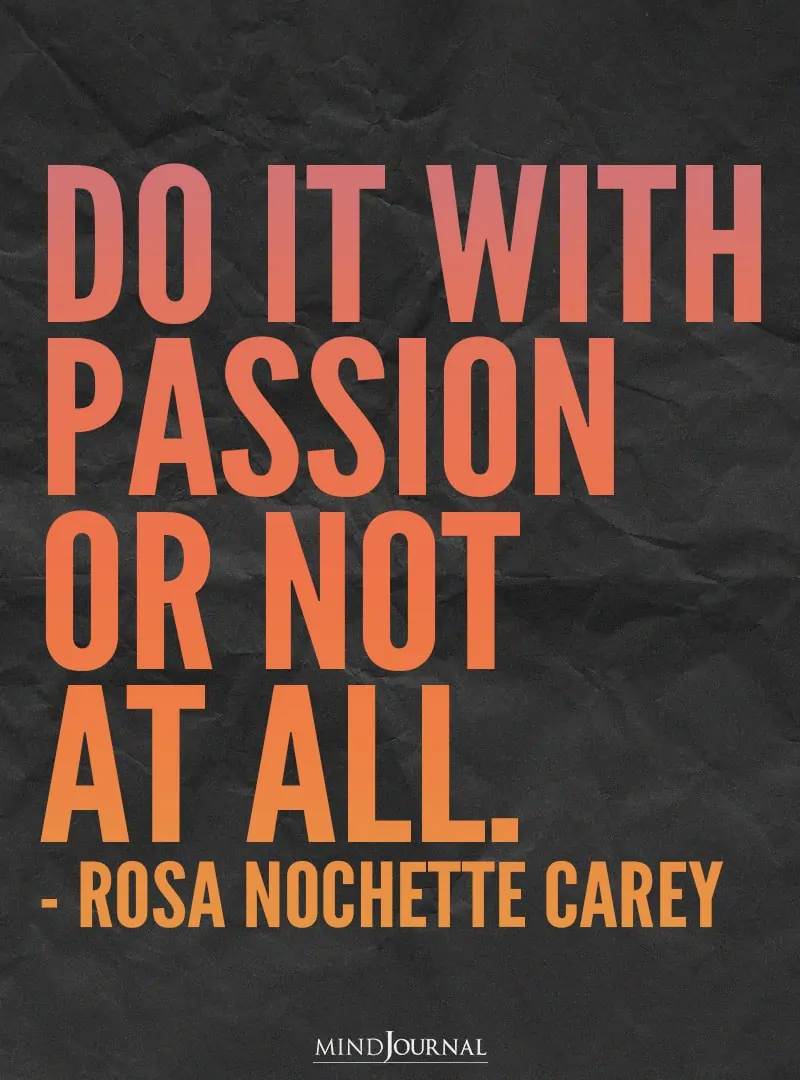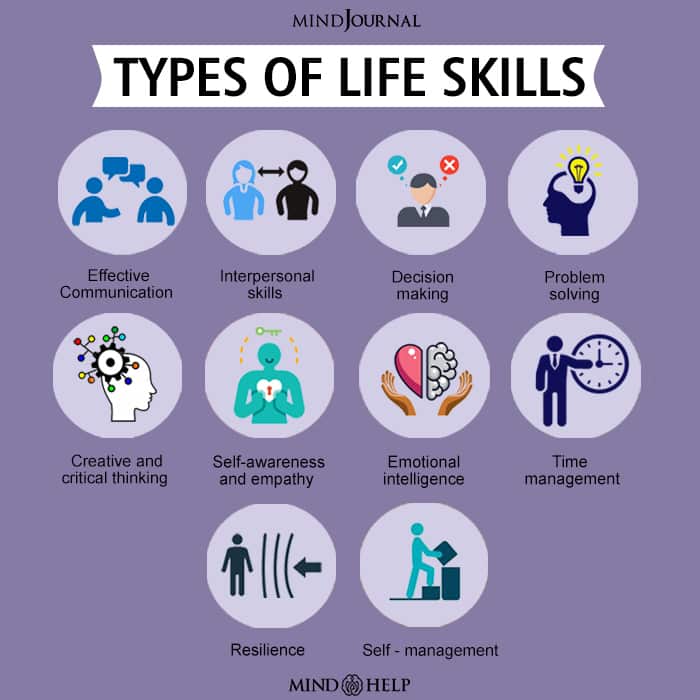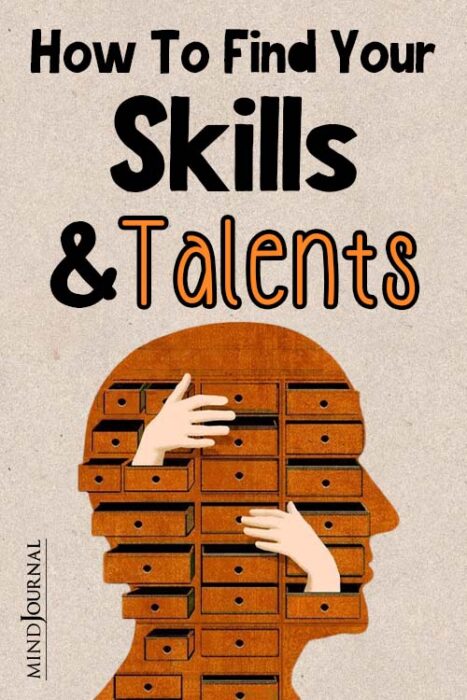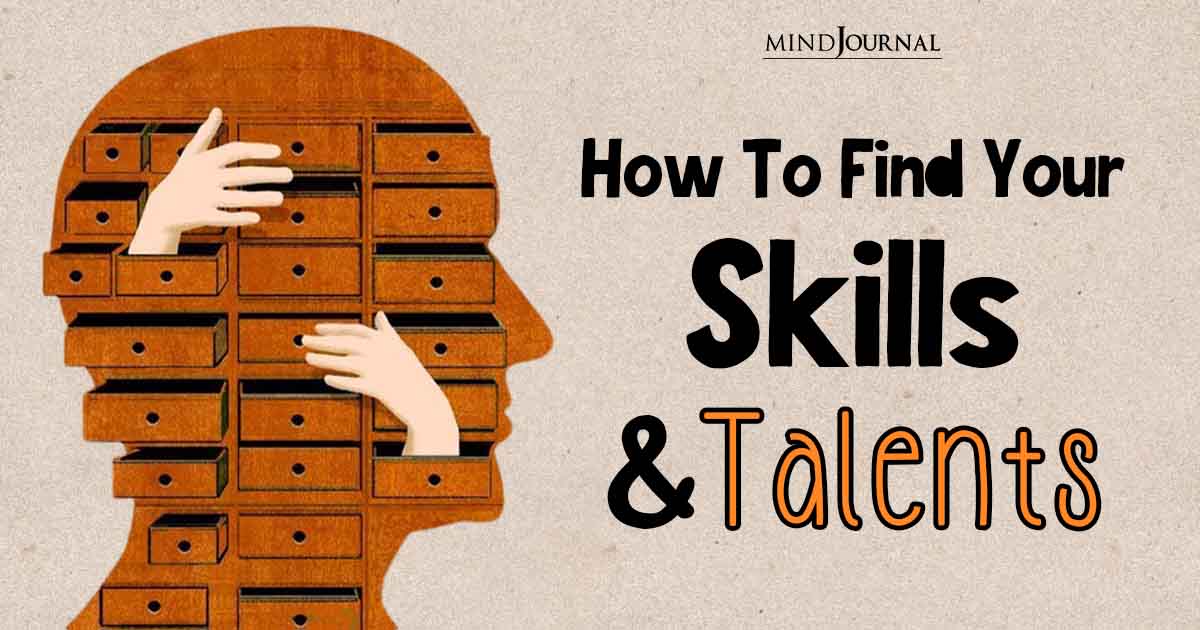Do you feel unfulfilled? Do you think you are not living up to your true potential? Do you believe you can pursue greater goals that are better suited to your actual talents but not sure which direction to take in life? Learning how to find your skills and talents can help you lead a more fulfilling life.
How to find your inner talent
Wondering “how to find my talent and passion?” Sometimes we are not aware of the skills and talents we may possess that can lead to more meaning, success and enjoyment.
Unfortunately, when we remain unaware of our inner talents, we may end up in jobs and careers that make us feel stuck and frustrated. We may feel lost, confused and disappointed with ourselves.
The good news is that all of us have unique skills and talents waiting to be discovered. Whether it’s something as simple as being a great listener, being good at organizing or being immensely creative, we all have strengths that can be used to our advantage.
But how do we identify them? What are some tips and strategies that can help you understand how to find your skills and talents?
Related: 14 Handy Social Skills That’ll Make You More Likable Instantly
How to discover your talent and passion
So how to find your talent? Here are a few effective ways to help you find your hidden skills and talents to unlock new levels of productivity, happiness, and self-knowledge –
1. Think about your passions

What activities did you enjoy as a child or a teenager? What activities do you find yourself drawn to as an adult? What topics or hobbies do you enjoy learning about? What do you spend your free time doing? Your passions may be a good indicator of your skills and talents.
The things you were drawn to from a young age often reflect an innate talent or interest. Reflect and look back at hobbies, skills, subjects in school, and games that engaged you the most. Even activities you enjoyed observing or watching others do can provide clues.
For example, if you enjoy writing, you may have a natural talent for communication and storytelling. If you enjoy cooking, you may have innate creativity and problem-solving skills. This is an excellent way to figure out how to find your talent and passion.
2. Pay attention to compliments and remarks
Listen to how others describe your qualities. Your skills may be revealed through the ways people compliment you. For example, if your colleagues frequently praise your patience or ability to explain things clearly, you may have strong teaching or mentoring skills. This is how to find your talent.
3. Ask for feedback from friends and family
Alternatively, you can ask your friends, family members, and colleagues for feedback on your performance in different areas. What do they think you excel at? What do they think you enjoy doing?
Sometimes, others can see our strengths more clearly and objectively than we can ourselves. Consider asking people who know you well and who you trust to give you honest feedback.
Discuss your interests and hobbies with loved ones and ask for their perspectives on where your strengths may lie. A close friend or relative may pick up on a talent you haven’t recognized. This is one of the most objective ways to learn how to find your skills and talents.
Looking for more ways to understand how to find your inner talent? Continue reading.
4. Watch for flow experiences
Do you ever lose track of time while working on a task or when you are engaged in an activity? Highly skilled people often enter a state of “flow” where they lose track of time while working on an activity.
A flow state is a mental state of complete absorption and focus, in which one is fully immersed in and enjoys an activity, often losing track of time. Reflect on your past for moments when you worked on a project for hours without noticing. These could relate to your natural skill set.
5. Consider skills you already have
One effective strategy to identify your hidden skills is to consider the skills you already possess. By reflecting on the skills you use in your current or previous job, hobbies, or other areas of your life, you may discover related skills that you haven’t considered before.
If you’re good at repairing machines, you may also have talent for carpentry, metalworking, or design. Additionally, you may find that you have transferable skills that can be applied to new areas or industries.
Related: 8 Reasons Why Intelligent People Have Poor Social Skills
Let’s explore some more answers to “how to find my talent and passion?”
6. Try new things
Still wondering how to find your talent? Experimenting with new activities and hobbies can help you discover hidden talents. Step outside of your comfort zone and explore new activities and hobbies.
You may surprise yourself with a hidden talent that arises through experimentation. Unlock new possibilities by learning a few chords on guitar, carving art from wood, baking bread, or painting with watercolors.
Take a class or workshop in a subject that you have always been interested in but never had the time to pursue. Join a club or group that focuses on a topic or activity that intrigues you.
Volunteering is also an excellent way to explore your talents while giving back to your community. This is one of the most exciting ways to learn how to find your talent and passion.
7. Take a personality test
Online personality tests and skills assessments can produce surprising insights into your natural strengths, abilities, preferences, interests and personality traits related to skills. While not definitive, assessment results can spark new self-discoveries and prompt reflection.
Tests like the Myers-Briggs Type Indicator (MBTI), the Big Five Personality Traits or the Enneagram can provide insights into your personality, such as whether you are introverted or extroverted, detail-oriented or big-picture focused, and more.
These traits can give you clues about the types of activities and tasks that you may be naturally good at and enjoy. This is a great way to understand how to find your skills and talents.

8. Look for patterns
Look for repetitive patterns in your thoughts, interests, performance and productivity. Do you feel naturally motivated to do certain tasks more than others? Do you tend to excel in certain types of activities without much conscious effort?
Are there common themes in your passions and interests? Identifying patterns can help you recognize your strengths and natural abilities. Looking for patterns can help you learn how to find your inner talent.
9. Identify your hobbies and interests
Figure out what you like doing in your free time and what skills are connected to those activities. Think about the things you do for fun: do you like cooking, crafting, traveling, playing games, gardening, writing? These often indicate related talents.
10. Volunteer or take an internship
Trying a new role, even unpaid, can illuminate innate talents in a practical setting. Volunteer positions allow you to experiment with different kinds of work and skill applications.
An internship in a field you’re interested in can provide valuable insights into whether you possess the required skills and temperament.
11. Keep a journal
Writing a journal can help you identify your skills and talents. Write down your thoughts, feelings, and experiences regularly. Record your achievements, and note down the skills and talents that you used to accomplish them.
Keeping a journal can help you reflect on your experiences and identify your natural talents. This is one of the most beneficial ways to understand how to find your talent and passion.
Related: 15 New Skills To Learn For Rapid Self-Improvement
12. Seek out new challenges
Challenging yourself is an excellent way to identify how to find your talent. When faced with a difficult task or situation and you push yourself beyond your limits, you may surprise yourself by discovering a natural talent for problem-solving, leadership, or creativity.
Don’t be afraid to step outside of your comfort zone and take on new challenges. Seeking out challenges can also help you develop new skills and improve existing ones.
Want more tips on how to discover your talent and passion? Read on.
13. Identify transferable skills
Transferable skills are skills that can be applied across different areas or fields. For example, if you are good at problem-solving, that skill can be useful in many different careers and activities.
Identifying your transferable skills can help you recognize your strengths and potential career paths. It is a great way to learn how to find your skills and talents.
14. Take courses and workshops
Taking courses and workshops can help you develop new skills and improve existing ones, which can open up new opportunities for you. Look for courses and workshops in areas that interest you. You can also take courses online, which are convenient and affordable.
15. Experiment with different career paths
Experimenting with different career paths is an excellent way to identify your skills and talents. Explore different industries and job roles to find the ones that match your interests and strengths.
You can also shadow professionals in different fields to gain insights into the skills and talents required for success.

16. Seek out mentorship
Seeking out mentorship is an excellent way to identify your skills and talents. A mentor can provide you with guidance, advice, and support as you navigate your career and personal development.
They can also help you identify your natural talents and provide you with insights into how to develop them further. Look for a mentor who has experience in your field of interest and who shares your values and aspirations.
17. Seek professional help
If you are still struggling to identify your skills and talents, consider seeking professional help. A career counselor or coach can help you assess your strengths, interests, and values and identify potential career paths.
Related: ‘No More Zero Days’: 4 Rules To Improve Life
18. Self-reflection
Self-reflection is the first step to identifying your skills and talents. Take some time to think about what your heart desires. What is important to you? What is it that you truly want to do with your life? What do you believe will help you achieve inner peace and make you feel fulfilled?
As all of us have different personalities, interests, mindsets and attitudes, we all want to achieve different things. Figure out what it is that will help you become your most authentic self. Reflecting on these questions can help you identify your natural talents.
Learning how to find your skills and talents is an ongoing process that requires self-reflection, experimentation, and feedback. Remember, everyone has unique skills and talents, and by focusing on your strengths, you can achieve greater success and satisfaction in your personal and professional life.
How to find your self worth
Finding your self-worth through your skills involves recognizing and valuing your unique talents and abilities. Now that you know how to find your skills and talents, here are some strategies to help you find your self-worth through your abilities:
1. Focus on skill mastery, not comparison
Base your self worth on continuously improving your skills and abilities, not on comparing yourself to others. Strive for personal growth, not external validation.
2. Set achievable goals
Set concrete, measurable goals that will allow you to build your skills step by step. Accomplishing manageable goals will boost your confidence and motivation.
3. Practice mindfulness
When practicing your skills, stay focused on the process, not the end result. Pay attention to your progress, not perfection. This will help develop a healthy relationship with your abilities. Mindfulness is a great way to boost your self-esteem and learn how to discover your talent and passion.

4. Track your progress
Keep a journal or notes to record your skill development over time. Note both your successes and challenges. Seeing your progress incrementally will reinforce your self worth. This is a great way to understand how to find your self worth.
5. Find a supportive community
Connect with others who share your interests and skills. Their encouragement and feedback can help instill a sense of belonging and competence that boosts self worth.
Related: How to Stop Self-Sabotage: 2 Proven Ways
6. Practice gratitude
Be thankful for the skills you already have and for the opportunity to develop new ones. An attitude of gratitude will keep you motivated and focused on self improvement, not self doubt.
7. Reframe failures
See setbacks and mistakes not as failures, but as opportunities to learn and grow. A growth mindset helps you build resilience and perseverance.
8. Help others
Using your skills to help and support others can give you a profound sense of purpose and self worth. Find ways to volunteer your skills to benefit your community.
These tips will help you learn how to find your self worth. The more you practice and improve your skills, the more confident you’ll become in your abilities. Focus on growth, not perfection. Over time, skill mastery can become a source of immense self worth and fulfillment.

Discover your talents
Finding your talents takes time, experimentation and reflection. As you explore new activities and interests with an open mind, pay attention to moments of effortless progress or flow. Speak with others about their observations of your strengths. Above all, be patient and graceful with yourself.
Your talents may reveal themselves gradually through a journey of self-discovery. By following your interests and vulnerabilities with curiosity, you allow your innate abilities to emerge and guide your path towards more meaningful work.
Now that you know how to find your skills and talents, go forth with confidence on your journey of self-discovery – who knows what amazing abilities await!
Related: How Clutter Affects Mental Health: The Psychology Behind It









Leave a Reply
You must be logged in to post a comment.